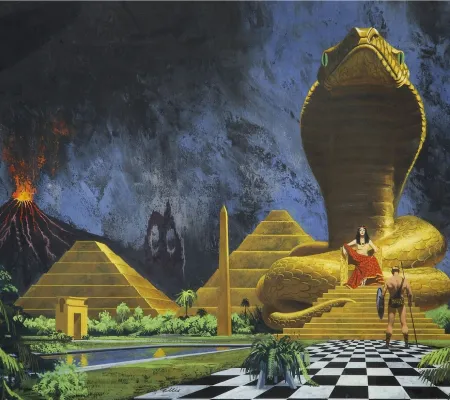In a 2018 survey, it was revealed that 41% of Americans believed that the archaeological record proves that our ancestors were visited by ‘Ancient Aliens.’ The same survey further suggested that 57% of Americans believe that Atlantis was once a real place. As neither of these claims can be supported by archaeological research, such staggeringly high levels of belief suggest that professional archaeologists have a problem on their hands.
For decades, these claims have thrived among alternative publication outlets while many professional archaeologists dismissed them as not worth engaging with. That time has passed, archaeologists must publicly address and debunk pseudoarchaeology claims before we risk losing ground in the marketplace of ideas about what took place in the ancient world.
Debunking pseudoarchaeology claims, however, is only the first step. We must seek to understand what makes these claims popular in the first place. In “Truth, Fiction, and Archaeology,” we will explore the long history of pseudoarchaeological claims and how they became a root influence in the modern perception of ancient cultures.
David S. Anderson received his Ph.D. In Anthropology from Tulane University specializing in the archaeology of the ancient Maya. His research has focused on the origins and development of complex sociopolitical organization, the role of sport in culture, and the many interactions between the ancient past and the modern world. His interests in archaeology were first peaked by reading a book about a mysterious lost civilization that professional archaeologists were too narrow-minded to recognize. As he started to study archaeology, he quickly saw how wrong this book was but it inspired a passion to understand how pseudoarchaeological claims flourish in the face of scientific archaeological research.


